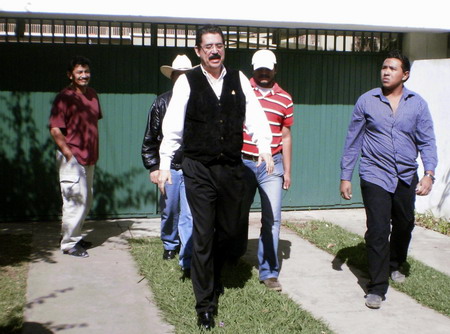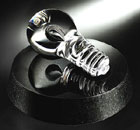Asia-Pacific
Zelaya to exit Honduras in win for coup leaders
(Agencies)
Updated: 2010-01-27 16:47
 |
Large Medium Small |
|
|
TEGUCIGALPA: As a new president takes office, toppled leader Manuel Zelaya will leave Honduras on Wednesday for exile after pressure by the United States and Latin American countries failed to reverse a coup that ousted him last June.
He timed his exit to coincide with the day opposition leader Porfirio Lobo is sworn in as president, effectively ending a crisis that began with Zelaya's ouster by the army.
Lobo won a November 29 election denounced by some Latin American and European governments as illegitimate since it was organized by a de facto government.
The mustachioed Zelaya, known for his signature white cowboy hat, plans to abandon the Brazilian Embassy where he has been holed up for months, surrounded by soldiers, as soon as Lobo takes office.
"I have an invitation ... to go to the Dominican Republic and I will accept the invitation, obviously with the approval of the new government," Zelaya told local radio on Tuesday.
Zelaya's departure marks a failure of regional diplomacy to push the de facto leaders to step down after the international condemnation of his predawn capture by the army on June 28.
US President Barack Obama, trying to shore up relations with Latin America, slammed the coup as a threat to democracy and backed months of talks first in Costa Rica and then in Tegucigalpa, all which collapsed with no negotiated solution.
Brazil, in a bid to flex its diplomatic muscles in the region, gave Zelaya refuge in its embassy when he snuck back into Honduras from exile in September. But his supporters turned the diplomatic residence into a chaotic camp-out and soldiers ringed the building like a fortress.
Honduras' de facto leader, Roberto Micheletti, appointed by Congress the day of the coup, refused to resign even after the United States pulled military aid and multinational banks froze loans to the impoverished nation of 7 million people.
From the first hours of the coup, Micheletti said Honduras would hold a regularly scheduled election in November. He said he would step aside only when Lobo took over on Wednesday.
Human rights groups documented serious abuses, including deaths, as security forces cracked down on pro-Zelaya protesters and media outlets in the weeks following the coup.












